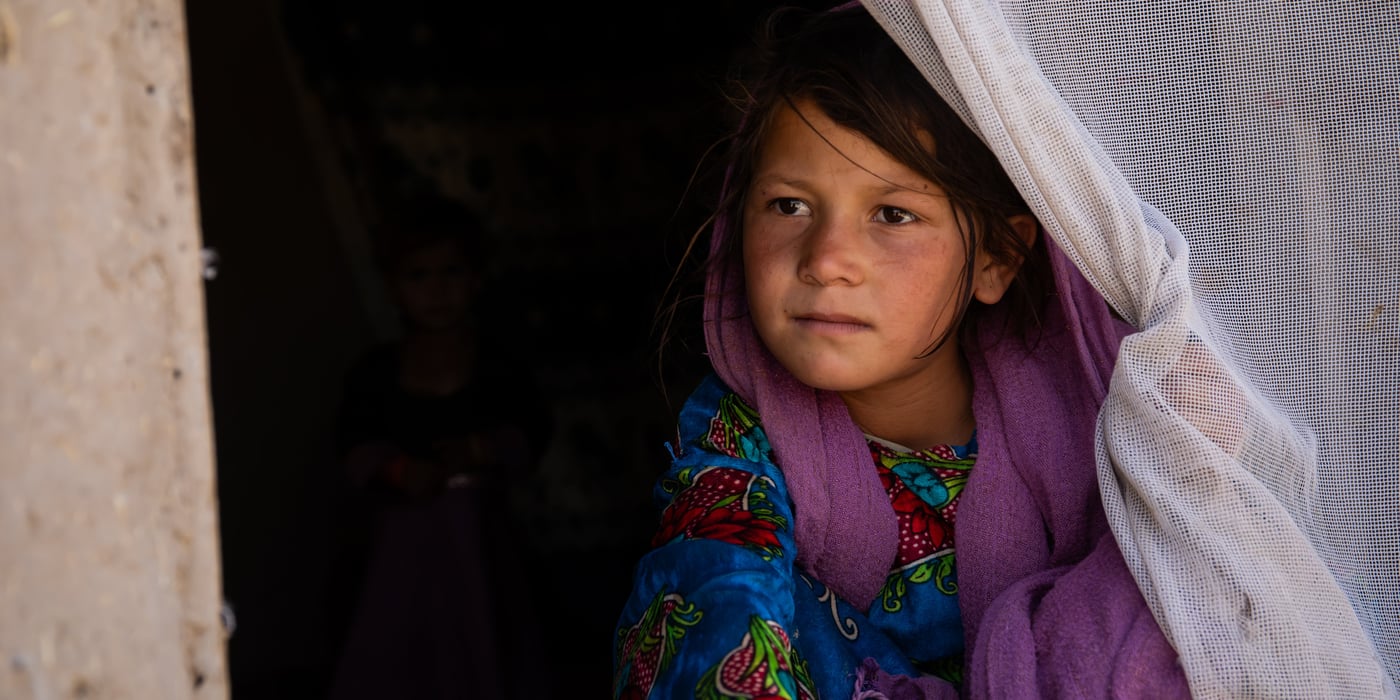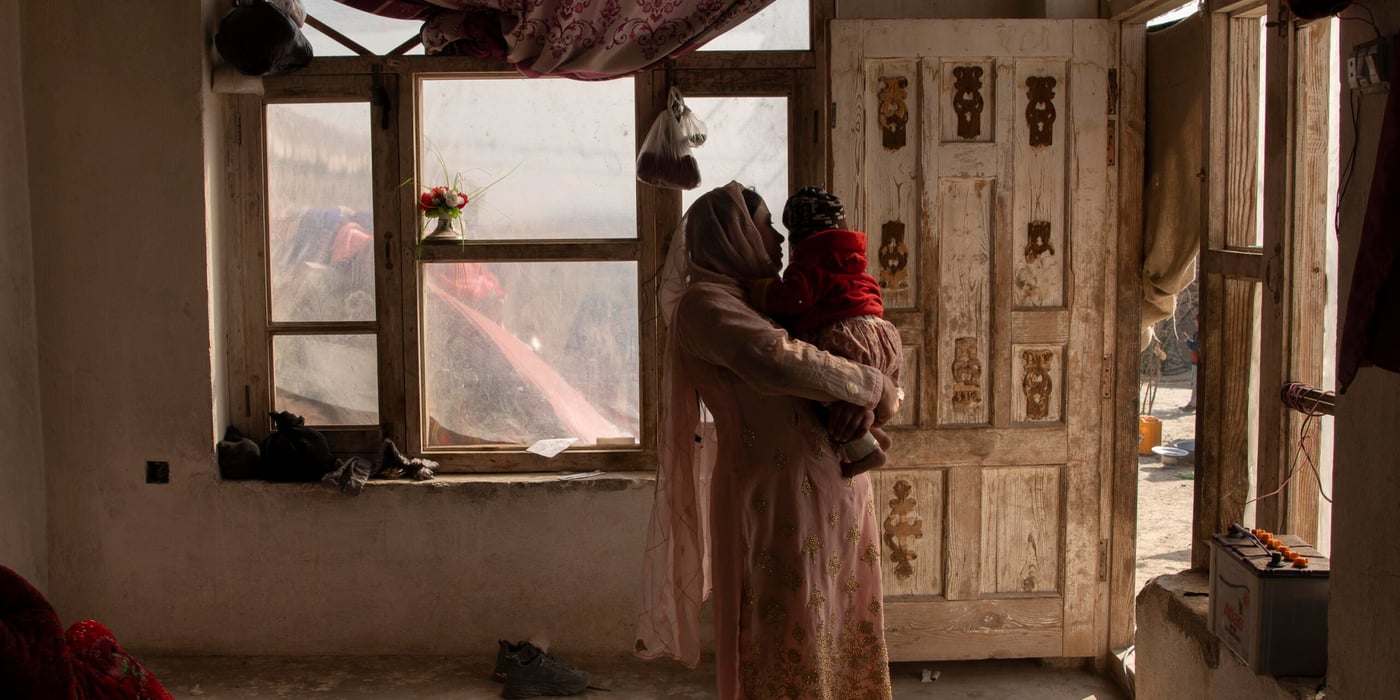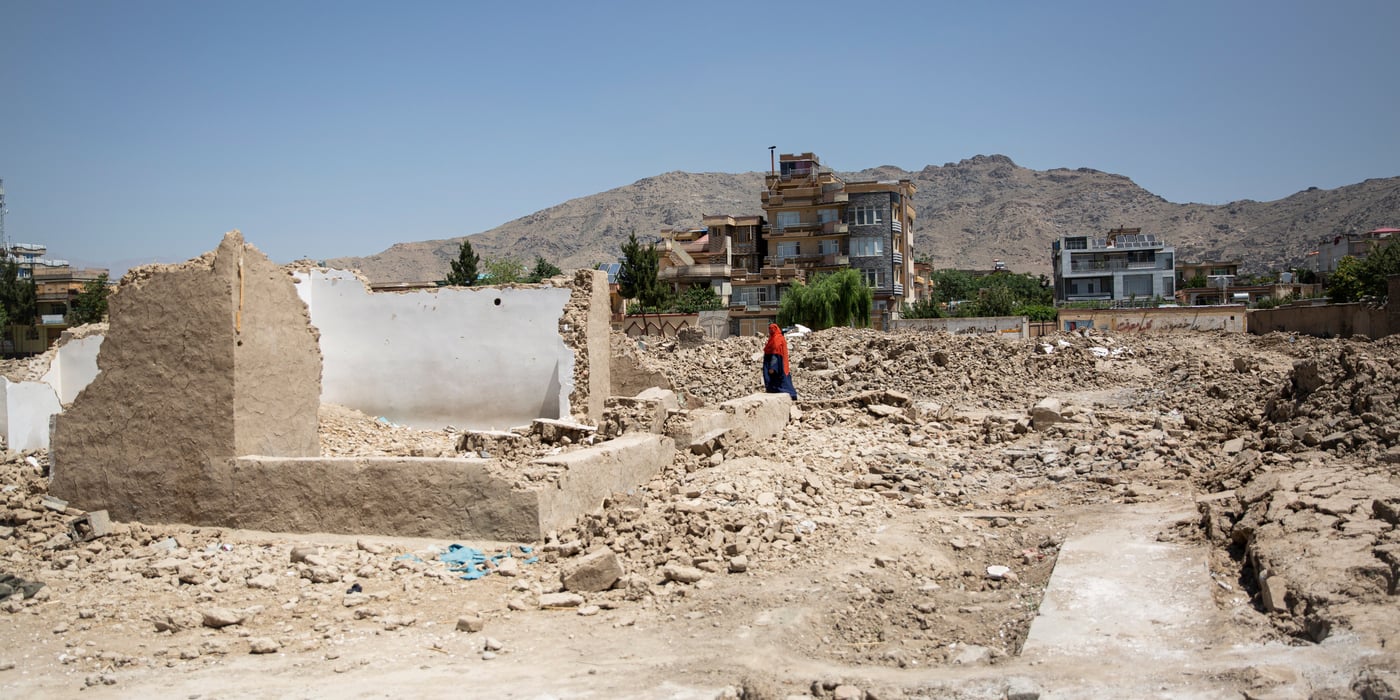
Do you remember five-year-old Kamran? His family was amongs the first wave of Afghan refugees in Pakistan that felt forced to return to their home country, some six months ago. NRC staff members found him lying under a warn-out tent in a bare compound in Behsud district of Nangarhar, exhausted and showing signs of malnutrition.
2016: Kamran in very bad shape

2017: Kamran playing with other children

The family still lives in the same compound, but it is not so empty anymore. NRC, with the support of United Nations Office for the Coordination of Humanitarian Affairs (OCHA) built a shelter home and toilets. “The home NRC built saved us from the harsh wind and rain this winter” Najibullah, father of Kamran and 7 other children, says.
2016: Urgent needs, living in the open

2017: New homes, brighter future
Band e Bela, the village where Kamran’s family now lives, hosts several other families supported by NRC. The area has become the residence of a new community of returnees

Saved Samira’s life
Some kilometers from Band e Bela, in Daman, lives M. Nabi, who we first met in September 2016. His youngest daughter Samira (2) was weak and sick sleeping on a Charpai in the open. The family had recently returned from Pakistan to Afghanistan and had no roof over their head.

With support from The Swedish International Development Cooperation Agency (Sida), NRC initially provided shelter tents to the family. We also supported the little girl under NRC's Individual Protection Assistance (IPA) scheme through the ECHO-funded Emergency Response Mechanism. Samira was the first ever person to benefit from this programe in Nangarhar. When her family took her to the hospital, she was diagnosed with pneumonia. NRC then covered all of the medical expenses.
With NRC’s special consideration, Samira is now walking around and feeling much more energetic. “I’m very thankful for NRC’s help,” says Samira’s father, Mohammad Nabi. “The Money NRC provided saved my daughter’s life.”
I’m very thankful for NRC’s help. The Money NRC provided saved my daughter’s life.Mohammad Nabi, Samira’s father
Rebuilding lives
The compounds, which used to be empty, are now barely recognisable. Clean houses have been erected, and many more are being built in the surrounding areas with support of OCHA.
With repatriations scheduled to restart soon, much more work is needed to be done. Many more families are expected to arrive, and already resettled families need help restarting their lives. But Mr. Nabi ended our conversation on a hopeful note “Although times are tough and earning money is difficult, sending my children off to school is a priority.”




